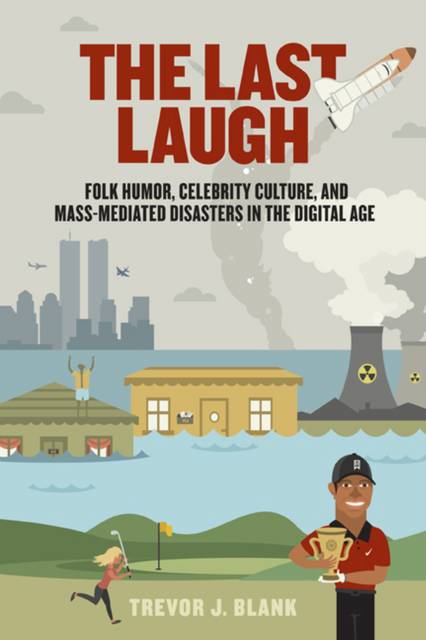
Je cadeautjes zeker op tijd in huis hebben voor de feestdagen? Kom langs in onze winkels en vind het perfecte geschenk!
- Afhalen na 1 uur in een winkel met voorraad
- Gratis thuislevering in België vanaf € 30
- Ruim aanbod met 7 miljoen producten
Je cadeautjes zeker op tijd in huis hebben voor de feestdagen? Kom langs in onze winkels en vind het perfecte geschenk!
- Afhalen na 1 uur in een winkel met voorraad
- Gratis thuislevering in België vanaf € 30
- Ruim aanbod met 7 miljoen producten
Zoeken
The Last Laugh
Folk Humor, Celebrity Culture, and Mass-Mediated Disasters in the Digital Age
Trevor J Blank
€ 42,45
+ 84 punten
Omschrijving
Widely publicized in mass media worldwide, high-profile tragedies and celebrity scandals-the untimely deaths of Michael Jackson and Princess Diana, the embarrassing affairs of Tiger Woods and President Clinton, the 9/11 attacks or the Challenger space shuttle explosion-often provoke nervous laughter and black humor. If in the past this snarky folklore may have been shared among friends and uttered behind closed doors, today the Internet's ubiquity and instant interactivity propels such humor across a much more extensive and digitally mediated discursive space. New media not only let more people "in on the joke," but they have also become the "go-to" formats for engaging in symbolic interaction, especially in times of anxiety or emotional suppression, by providing users an expansive forum for humorous, combative, or intellectual communication, including jokes that cross the line of propriety and good taste. Moving through engaging case studies of Internet-derived humor about momentous disasters in recent American popular culture and history, The Last Laugh chronicles how and why new media have become a predominant means of vernacular expression. Trevor J. Blank argues that computer-mediated communication has helped to compensate for users' sense of physical detachment in the "real" world, while generating newly meaningful and dynamic opportunities for the creation and dissemination of folklore. Drawing together recent developments in new media studies with the analytical tools of folklore studies, he makes a strong case for the significance to contemporary folklore of technologically driven trends in folk and mass culture.
Specificaties
Betrokkenen
- Auteur(s):
- Uitgeverij:
Inhoud
- Aantal bladzijden:
- 188
- Taal:
- Engels
- Reeks:
Eigenschappen
- Productcode (EAN):
- 9780299292041
- Verschijningsdatum:
- 26/08/2013
- Uitvoering:
- Paperback
- Formaat:
- Trade paperback (VS)
- Afmetingen:
- 154 mm x 228 mm
- Gewicht:
- 267 g

Alleen bij Standaard Boekhandel
+ 84 punten op je klantenkaart van Standaard Boekhandel
Beoordelingen
We publiceren alleen reviews die voldoen aan de voorwaarden voor reviews. Bekijk onze voorwaarden voor reviews.









